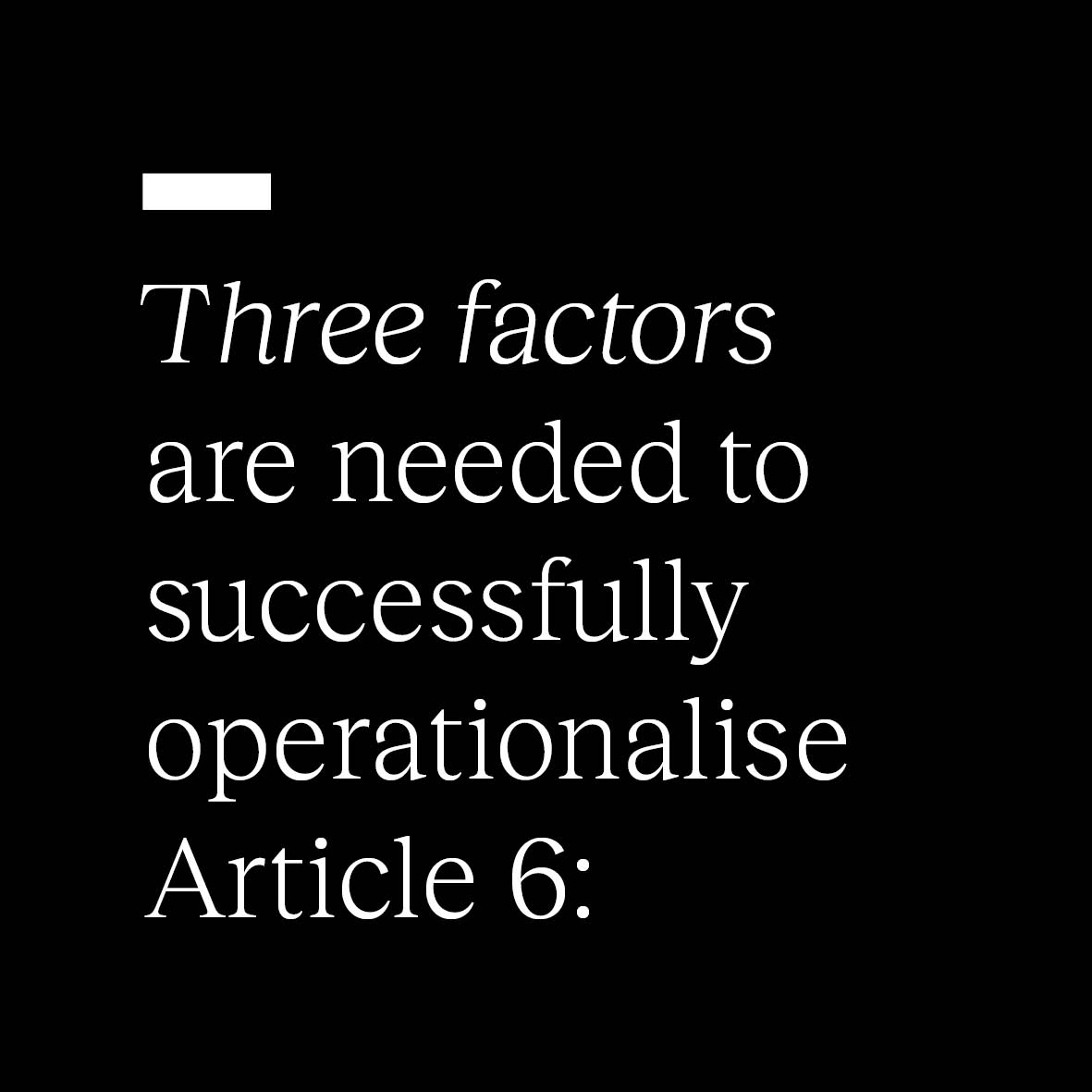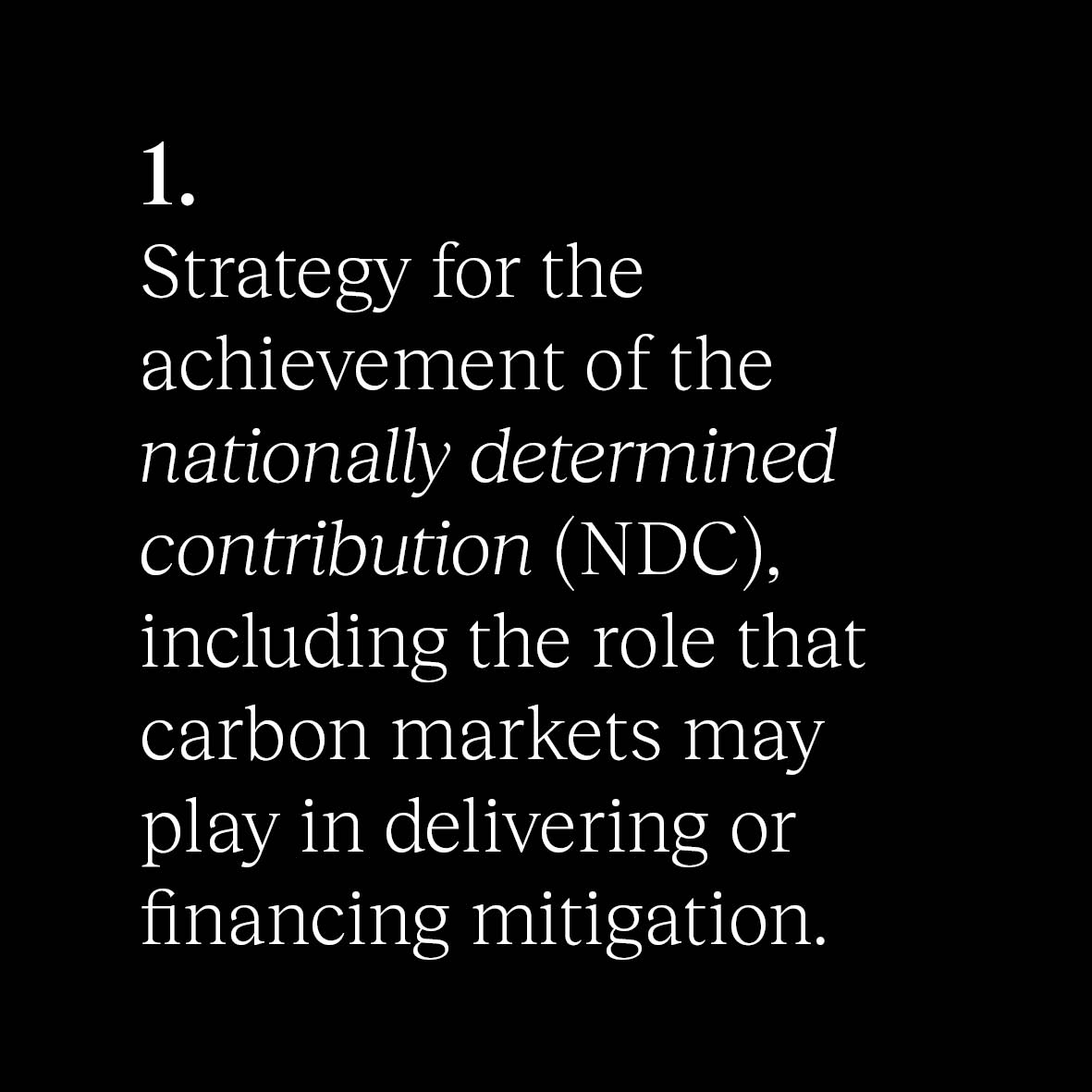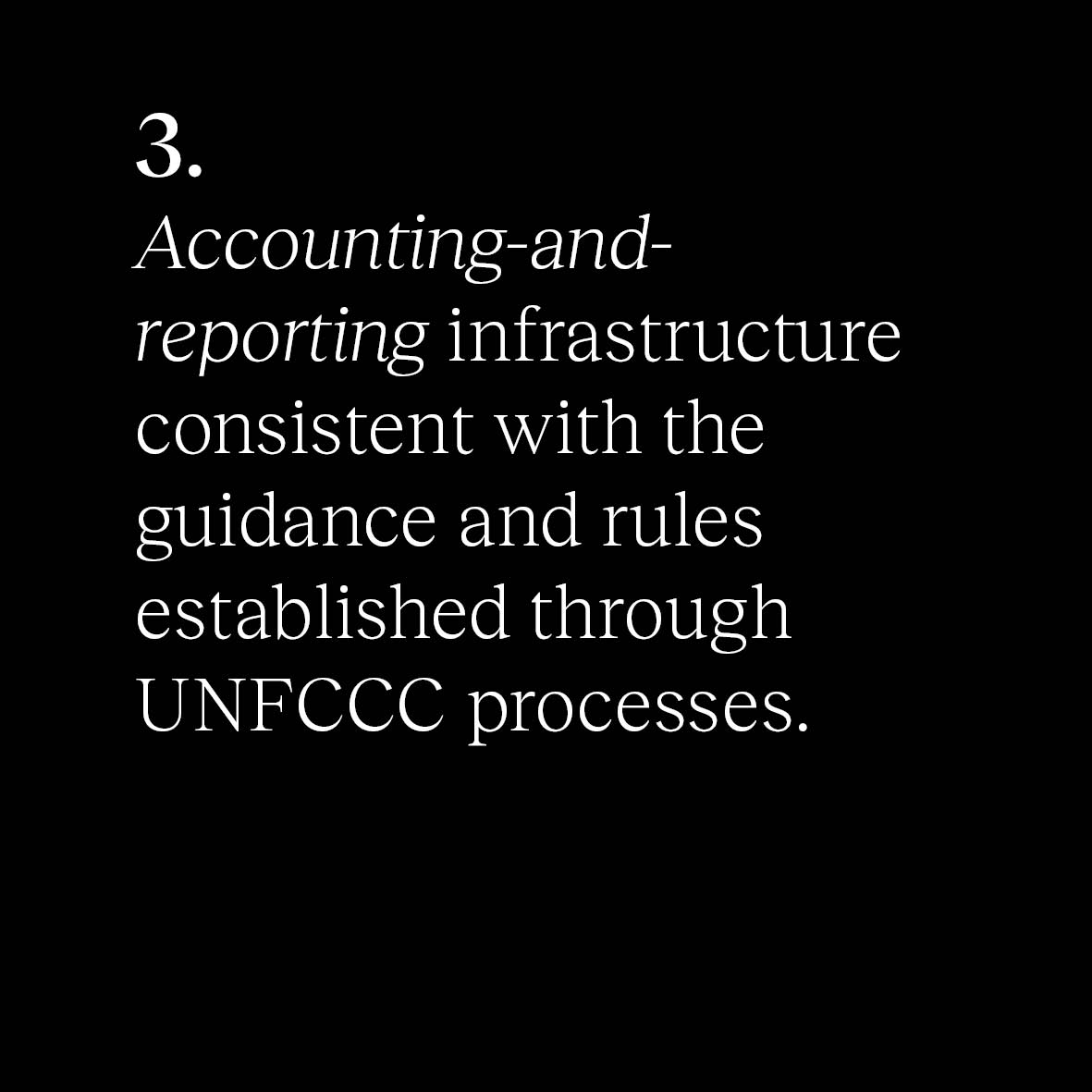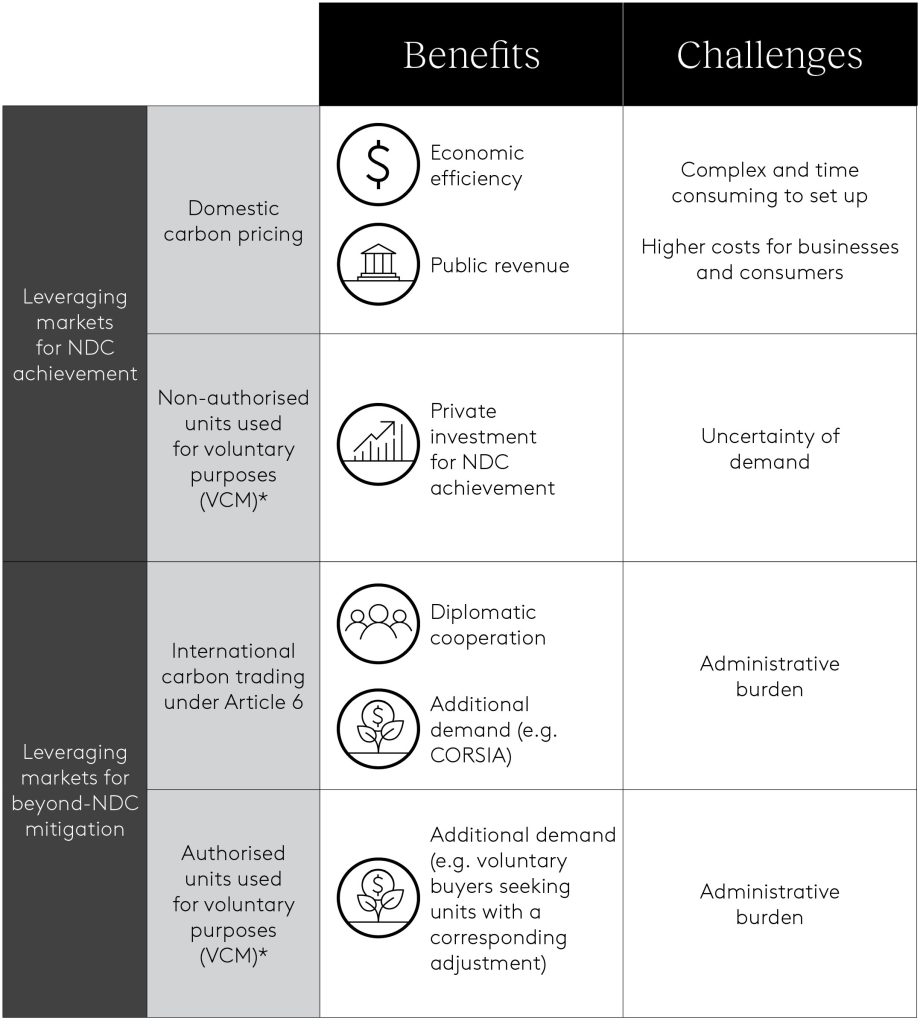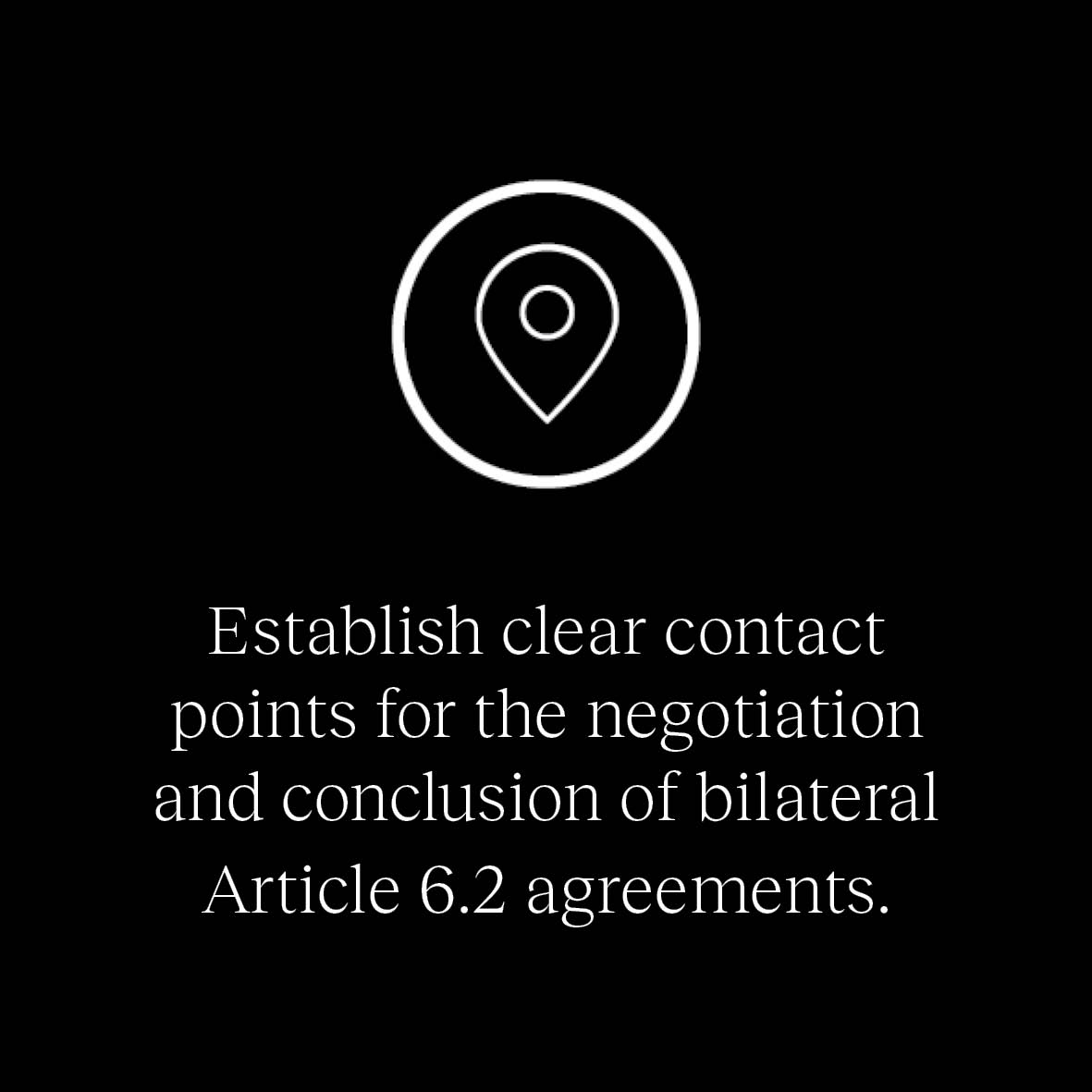Below we unpack the fundamental components and considerations for countries in executing on each of these elements.
1. Strategy for the achievement of the NDC, including the role that carbon markets may play in delivering or financing mitigation
Countries will need to make a set of strategic decisions regarding the nature of their participation, if any, in the international cooperation established by Article 6.
Country strategies to achieve their NDCs should inform these decisions. Ideally, the policy implications of these strategic decisions regarding Article 6 participation, including processes for authorisation, will be articulated in a publicly available national Article 6 policy.
In determining their national strategy on Article 6, countries should seek to prioritise international carbon finance for mitigation in sectors that are otherwise difficult for the country to finance. This approach aims to maximise benefits to the country from the sale and international transfer of mitigation outcomes.
Countries have several avenues through which they could engage in carbon markets to support mitigation activities for NDC achievement and/or beyond NDC mitigation. The table below provides an overview of these choices along with the advantages and disadvantages associated with them. Not all approaches will result in international transfers under Article 6, with domestic carbon pricing and trade of non-authorised credits under the VCM providing finance for NDC implementation. The strategic approaches and the available mechanisms that sit within them are not mutually exclusive, with some countries already combining multiple approaches.
2. Legal and policy frameworks to define eligibility, manage the activity cycle, track mitigation outcomes, and authorise international transfer under Article 6.
To engage with Article 6 effectively, host countries will require legal and policy frameworks to support the creation, verification, and accounting of mitigation outcomes—including A6.4 ERs—and effectuate their transfer.
